My goal here is to provide you with valuable information to help you achieve the best results for your restaurant. While this subject may seem complex to some, we’ll make it as simple and useful as possible so you can implement effective strategies. In this webinar, we’ll focus on maximizing your private dining and catering leads through PPC and Google Ads.
I’m Sebastian Stall, CEO and founder of Breath Marketing, a restaurant marketing agency dedicated to helping restaurants elevate their marketing efforts and achieve their desired outcomes. While this webinar emphasizes the use of Google Adwords, it’s crucial to remember that a successful marketing campaign involves utilizing multiple channels to attain optimal results.
Even if you’re primarily running ads for private dining or catering, it’s essential to support your marketing efforts through various channels. Though we won’t delve into those specifics today, it’s important to keep in mind the potential benefits of leveraging all available marketing channels.
Today, we’ll cover why PPC is the key to unlimited scalability in terms of lead flow for your private events and catering services. We’ll explore live examples and walk you through a case study showcasing how we achieved a three to eight times ROI for our clients. Additionally, we’ll demonstrate how to set up and structure your pay-per-click marketing campaigns to minimize cost per lead and maximize ROI.
We’ll also discuss key performance indicators (KPIs) tracking, optimizing your landing pages, and structuring your campaigns for the best results. The primary objective is to ensure that your restaurant appears as often as possible when customers search for relevant terms. By including specific keywords in your campaigns, people searching for catering or private dining will be able to find your restaurant.
Many PPC campaigns fail due to a lack of understanding of the auction process and the intricacies of the restaurant industry. To achieve success, you need to understand your target audience, their preferences, and their journey towards booking private events or catering services. Additionally, it’s crucial to avoid setting up only one ad group that directs visitors to a poorly structured landing page or the homepage of your website. Such practices lead to wasted ad spend and underwhelming results.
To gauge the success of your PPC campaigns, tracking is essential. Implement conversion tracking through tools like Google Analytics to monitor form submissions and calls generated from your ads. Utilizing platforms such as CallRail can help track and record calls, providing valuable insights into customer interactions. It’s crucial to respond promptly to leads, as studies have shown that delayed responses drastically decrease the chances of conversion.
Cost per lead can vary depending on your restaurant concept and location. On average, for private dining, you can expect costs ranging from $20 to $33 per lead, while catering typically ranges from $18 to $35 per lead. Return on investment (ROI) can vary between three and eight, depending on various factors such as restaurant type and specific circumstances.
Effective campaign structure involves organizing ad groups based on different occasions or target audiences. For example, you can create separate ad groups for corporate events and social events, tailoring your messaging and keywords to each group. It’s also advisable to create dedicated landing pages for each ad group to improve conversion rates.
When choosing keyword match types, it’s essential to understand the differences between broad match, phrase match, and exact match. Broad match includes related terms, while phrase match focuses on exact phrases while allowing slight variations. Exact match restricts the search term to an exact match. It’s recommended to use a combination of these match types, emphasizing phrase and exact match to ensure relevancy and control over your ad visibility.
Don’t overlook the importance of negative keywords. These are terms you don’t want your ads to appear for. By carefully selecting negative keywords, you can prevent wasted ad spend and improve ad targeting.
Writing compelling text ads that resonate with your customers is vital. Tailor your ad copy to match your restaurant concept and target audience. Utilize tools like ChatGPT to generate ad copy quickly and effectively, ensuring it aligns with your desired tone and messaging. Less is more in ad copy, and it’s crucial to provide a clear call to action and focus on a single objective.
To make your ads stand out, leverage ad extensions provided by Google. These include call extensions, location extensions, and callout extensions. By utilizing these extensions, you can enhance your ad visibility and increase the likelihood of attracting potential customers.
Lastly, your landing pages should be optimized for conversion. Showcase your restaurant and provide the necessary information in an attractive and user-friendly manner. Include features like virtual tours, accommodate guest information, and clear forms for visitors to submit their details.
In conclusion, mastering PPC and Google Ads for private dining and catering leads requires a well-structured campaign, effective tracking, compelling ad copy, and optimized landing pages. By implementing these strategies, you can enhance lead generation, minimize costs, and achieve a significant return on investment for your restaurant.
Stay tuned for further details and step-by-step guidance on each aspect covered in this webinar. Feel free to ask any questions and engage with the content. At Breadth, our restaurant’s success is our primary goal, and we’re excited to help you take your marketing to the next level, Let’s Chat!
Sebastian Stahl,
CEO & Founder
Breadth Marketing



